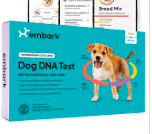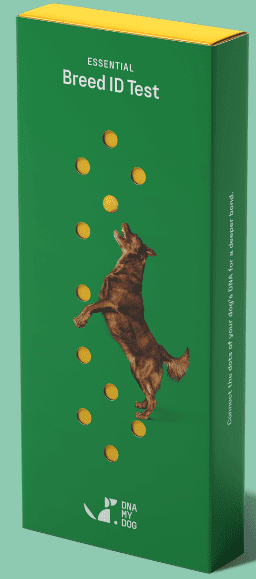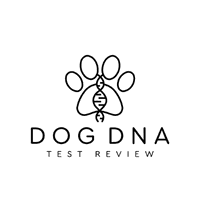Best Dog Breed DNA Tests
We understand that knowing more about your dog’s breed is important to you.
That’s why we have carefully examined dog breed DNA tests to assist you with uncovering all the information you need to know to find the right dog breed DNA test for your dog.

What is a dog breed DNA test?
A dog DNA breed test is a way for pet owners to determine their dog’s breed. It can help people to better understand their dog’s health risks, personality traits, and other behavioural factors associated with their breed. The test is done with a simple at-home saliva sample and the results can give pet owners valuable insight into their pup’s background and lineage.
Why are dog breed DNA tests important?
Dog breed DNA tests are important because they can help pet owners better understand their dog’s breed, physical traits, and potential health issues. These particular dog DNA tests can also provide insight into a dog’s ancestry, helping to uncover their unique family history and giving pet owners a deeper insight into their pup’s background. With the right DNA test, pet owners can also make better decisions regarding the health and wellness of their pet.


What are the benefits of a dog breed DNA test?
Dog Breed DNA tests are a great way to obtain valuable information about a dog’s ancestry and health. It can help
- Identify breeds in a mixed breed dog
- Provide insight into the potential health risks a dog may face in their lifetime and
- Screen for pet parent-specific hereditary diseases
Dog Breed DNA tests can also provide peace of mind when selecting a puppy, as it can help identify any genetic predispositions to common diseases in certain breeds that may be passed down to the puppy. Additionally, these tests can be used to provide proper nutrition and exercise plans tailored to the breed of the dog, ensuring that the pet gets the best care possible.
Types of Dog Breed DNA Tests
There are three different types of dog breed DNA tests. They are:
Single-breed Identification Test
The most basic type of dog breed DNA test is a single-breed identification test. This type of test will identify one or more breeds in a dog’s ancestry, but will not provide any further information about the dog’s genetic makeup.


Purebred Dog DNA Test
For those looking for a more comprehensive result, purebred dog DNA tests are available, which will provide an analysis of all the breeds that make up a dog’s ancestry.
Multi-breed Dog Identification Test
Multi-breed identification tests are also available, which will provide a breakdown of a dog’s ancestry and the relative contribution of each breed to the mix. These tests often provide insight into the dog’s physical characteristics and potential health risks. For an even more detailed look into a dog’s ancestry, there are whole genome sequencing tests which can provide a more in-depth look at a dog’s genetic makeup. This type of test can also provide information about a dog’s potential health risks, making it a valuable tool for breeders and owners alike.

What Dog DNA Breed Tests Do We Suggest?

Embark Dog DNA Test
- Embark screens for 350+ dog breeds, more than any other dog DNA test.
- Embark uses research-grade data and is partnered with Cornell University College of Veterinary Medicine.
- Find and connect with your pup’s family through the world’s first canine relative finder.
- You can talk to one of Embark’s dedicated vets or geneticists. Embark generally delivers results in 2-4 weeks and keep you updated every step of the way.

Wisdom Panel Breed Discovery 3.0
- The most accurate dog DNA test, that screens for 350+ breeds & offers the most precise breed report available.
- Test for medication sensitivities – find out if your dog may have a negative reaction to commonly used medications.
- The world’s largest breed database and 3M+ dogs tested
- You can go back three generations to learn how your dog’s unique breed mix came to be.
- Quick, painless swabbing process, fast results, and reliable insights you can use for years to come.

DNA My Dog Genetic Testing Kit
- This test accurately identifies more breeds and varieties than any other test on the market, so you can confirm your dog’s ancestry and genetic breed. Ideal for adopted dogs and for pets with mixed breeds.
- You can also get some genetic information about your pet’s personality traits.
- The testing Kit is easy to use and doesn’t hurt your dog.
- You’ll get the results approximately in 2 weeks from receipt of your dog’s DNA test sample. The report includes a breed identification certificate of types found in your dog’s unique DNA.
